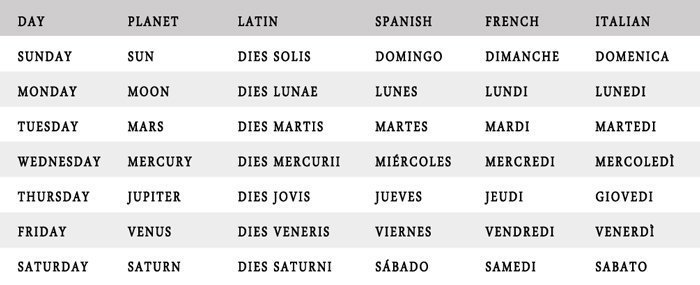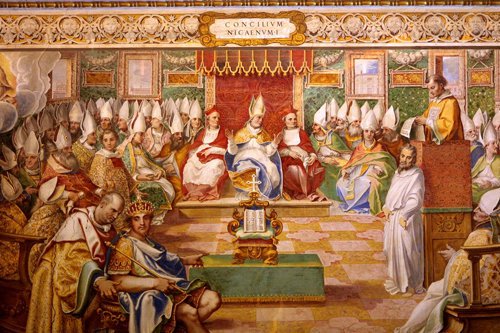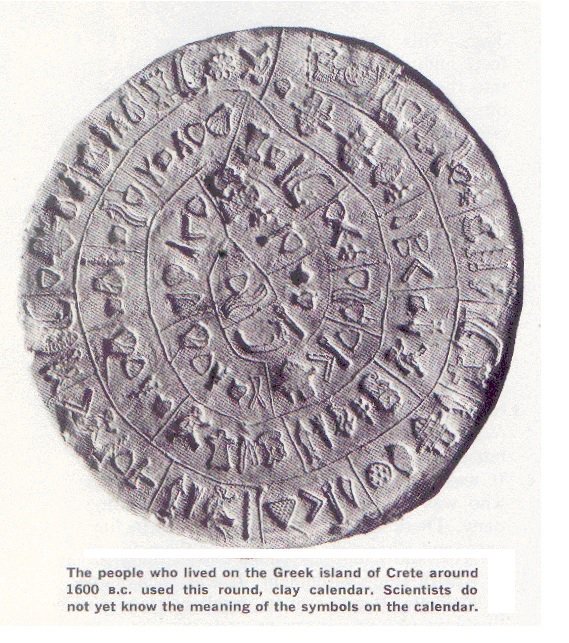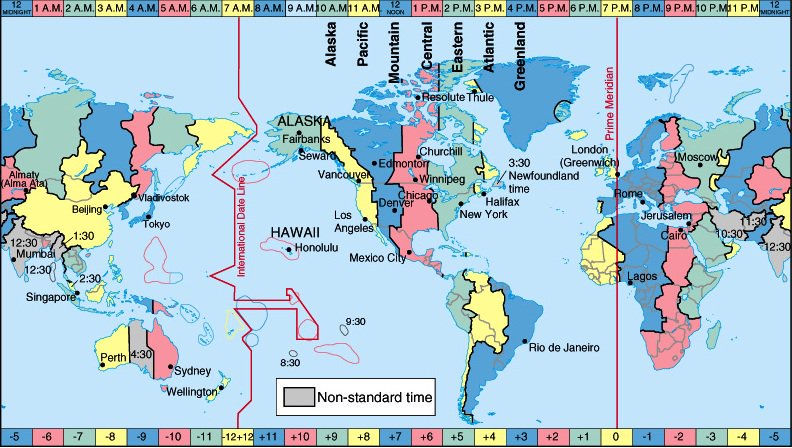Arthur S. Maxwell told the story of an assumption made in time of war that changed the outcome of history. According to Maxwell, the Spanish Armada was chasing smaller, out-gunned British ships commanded by Vice Admiral Lord Nelson. The Spanish ships outnumbered the British ships and an easy victory seemed assured. Suddenly, however, a British sailor fell overboard. Under the circumstances, most commanders would continue sailing on. Why risk the lives of all just to save the life of one?
That is not what happened, however. The command was given to rescue the British sailor. The British ships slowed. A lifeboat was lowered and sent to save the lone man.
Seeing this, the Spanish commander could not believe that anyone would risk defeat to save the life of a single sailor. He made the assumption that the British commander must certainly have seen reinforcements on the horizon. Why else would they have stopped and taken the time to save one man? Under this mistaken assumption, the Spanish ships turned and fled, leaving the British ships unscathed to fight another day.
Ultimately, this assumption contributed to the virtual annihilation of the Spanish navy when Spain joined France to fight the British at the Battle of Trafalgar. The British victory at Trafalgar, “Destroyed Napoleon's maritime strategy and invasion plans . . . [This] set the limit to Napoleon's empire, and plotted the course of his downfall.”1 Had the Spanish commander not made the false assumption he did, Nelson might have been defeated earlier, and the Battle of Trafalgar could have had a much different ending, if fought at all. History would have been very different save for one small false assumption.
The Danger of Assumptions
Assumptions use known facts (or accepted-as-true ideas) to extrapolate beliefs about something that is actually unproven. The problem arises when an incorrect assumption is accepted as rock-solid truth.
Extrapolate: “To infer or estimate by extending or projecting known information.”
American Heritage Dictionary of the English Language
|
Some assumptions are funny. Take, for example, Dr. Dionysius Lardner’s warning in the early 1800s that anyone traveling full speed on trains would asphyxiate from lack of oxygen. Other assumptions can be dangerous, such as the assumption made in the 17th century that all blood is the same, leading doctors to transfuse animal blood into humans. The humans typically died. And the more widespread the assumption, the stronger its power to delude.
Today, Christendom has been caught in a delusion. A delusion based on an assumption. Sadly, the assumption has the weight of nearly 1,600 years supporting it, trying to silence all who would reveal the truth.
This assumption is that the modern week, Sunday through Saturday, has cycled continuously and without interruption since Creation. This assumption has created the delusion that Saturday is the seventh-day Sabbath of Scripture, while Sunday—as the first day of the week—is the day on which Yahushua arose from the grave. The delusion is the affect of the assumption. But the assumption is wrong.
The truth is today’s Saturday is not the original Sabbath on which Yahuwah rested at Creation. It is not the ancient Sabbath enshrined in the 10 Commandments at Sinai, and observed by Yahushua and the disciples. It is not the true Sabbath kept by the early Christians in the first few centuries of our common era. Neither is Sunday the day on which Yahushua arose from the dead. Such statements can be shocking and it is normal to have a knee-jerk reaction, dismissing them as wrong. However, history, Scripture, and even astronomy all prove the assumption of a continuous weekly cycle is wrong.
Rather than immediately rejecting these statements as heresy—“Because they just have to be wrong!”—WLC invites you to carefully study the facts forgotten in history, and lost in Scripture, but still accurately preserved in the heavens. Please keep an open mind: a mind that is willing to accept and obey if the Spirit of Yah convicts you that it’s true. You can trust Yahuwah to keep your mind safe as you carefully review the evidence, drawing together “Precept . . . upon precept, precept upon precept, line upon line, line upon line, here a little, and there a little.” (Isaiah 28:10, KJV)
Forgotten in History
The conversation was equal parts frustrating and surprising. I respected my friend. He was well educated. He held a Master’s of Divinity degree. I believed him to be an intellectually honest, truth-first man. As a Seventh-day Adventist minister, I’d heard him speak in evangelistic meetings, explaining why worshipping on a precise day (the seventh-day Sabbath) was important; that not just any day (read: Sunday) would do.
So, when I learned that the Sabbath in Bible times was calculated by a different calendar, he was one of the first with whom I wished to share. With his love of the truth and his careful scholarship, I just knew he would want to hear this, too. (I had not yet learned that it is often hardest to share with those who believe they know more than you.)
At first, he dismissed the idea that the concept of a continuous weekly cycle ever since Creation is nothing but a false assumption.
“When the calendar transitioned from the Julian calendar to the Gregorian, no days of the week were lost. Thursday, October 4, was immediately followed by Friday, October 15,” he said, explaining facts I already knew.
He was correct, but he wasn’t going back far enough. The truth is hidden in the misty past, but to find the truth, it is necessary to dig much deeper and go back much further than a mere 400 years ago. The change in the weekly cycle—and even the length of the week—occurred over a millennia earlier than the introduction of the modern Gregorian calendar.
The most ancient calendars, from the most advanced societies, were luni-solar. Egypt was the first nation to move to a solar calendar, but originally, calendars were always linked in some way to the moon, either as strictly lunar calendars (which had the problem of months drifting through the year, and seasons coming at unexpected times) or luni-solar, where the months (lunations) were anchored to the solar year, thus preventing seasonal “drift”. This fact has been repeatedly established by various archeologists. As Dr. Nicholas Campion of the University of Wales writes: “The use of astronomy for collective purposes, both religious and political, is apparent in the earliest astronomical records, from the evidence for Palaeolithic lunar calendars to megalithic monuments and Mesopotamian celestial-omen reports.”
Time itself is, of course, continuous. However, that does not mean that the method by which it is counted has always been continuous as well. Weeks on the modern calendar do cycle continuously. But, this has not always been so and we do not have to go clear back to Paleolithic lunar calendars to establish this fact.
The Planetary Week
Scholars refer to the modern week in use today as the “planetary week.” This is due to the fact that the days of the week are named after various planets or, more precisely, planetary gods. In English, the names for Tuesday, Wednesday, Thursday, and Friday, were derived from the Norse gods: Tiw, Woden, Thor, and the goddess Frigg, Woden’s wife.2

Depending upon the language, this is a difficult concept to get across, because once in power, the Roman Catholic Church wanted to hide the pagan origins of the planetary week and delude people into believing that it was but an extension of the Biblical week. (Their success can be seen in the fact that many today still assume the modern Saturday is the Sabbath of Scripture.) A concerted effort was made to change the pagan day-names to Biblical day-names. In other words: “First Day,” “Second Day,” “Third Day,” etc.
In this attempt, the Catholic Church was only partially successful. In a number of languages today, the original “Saturday” (or Saturn’s day) was replaced by the word “Sabbath” while the original “Sunday” (day of the Sun) is referred to as “Lord’s Day.”
Obfuscate: “To make so confused or opaque as to be difficult to perceive or understand. To render indistinct or dim; darken.”
|
Let there be no mistake, however. The purpose was to deceive and hide the true, Biblical Sabbath. Eviatar Zerubavel, an Israeli professor of sociology at Rutgers University, wrote a fascinating book entitled The Seven Day Circle: The History and Meaning of the Week. In it, he clearly documents the pagan origins of the modern week as well as the Roman Catholic attempt to obfuscate those origins. He writes:
Despite its obvious effort to provide the week with a distinctively Christian content, the Church nevertheless chose to preserve its Jewish seven-day rhythmic form. This should not be taken too lightly; as it could have chosen to assemble regularly in accordance with the traditional Roman eight-day weekly cycle . . . After all, in abrogating the Sabbath, the Church also destroyed the raison d’être [reason for existence] of the Jewish seven-day week.
The preservation of the seven-day rhythm was, in part, the obvious result of the Church’s deep, unconscious attachment to Judaism, as well as a pragmatic attempt to avoid alienating the rather significant Jewish component of its membership unnecessarily. However, a brief glance at the names of the days of the week in most European languages ought to remind us that the Jewish week is not the only context within which the evolution of the ecclesiastical seven-day cycle ought to be viewed.As we shall see, it was the convergence of both Jewish and astrological weeks around the time Christianity was being introduced into the Roman Empire that produced the seven-day cycle that has since spread throughout most of the civilized world.3
In other words, Zerubavel is saying, the construction of the modern week was a deliberate choice, not an automatic extension of how time was calculated earlier. Other week-lengths were deliberately rejected while a week of seven days was deliberately chosen to emulate the Jewish seven-day week.
When people are presented with the facts of history: that the modern Saturday is not the Biblical Sabbath, many point to the demonstrable fact that plenty of languages refer to the seventh day of the week as “Sabbath” rather than using the original planetary designation of Saturn’s day. Zerubavel explains this as well. He says:
While the RomanCatholic Church has officially clung to the traditional Jewish nomenclature [system of naming] of the days of the week, planetary designations of these days appeared as early as the second century in the writings of the church fathers, and were popularly used by Christians at least since A.D. 269. (The only significant organized Christian attempt to restore the original Hebrew nomenclature of the days of the week seems to have been the official elimination of the “heathen names” by the First General Assembly of Pennsylvania, obviously representing the spirit of the Society of Friends, between 1682 and 1706. Incidentally, to this day, Quakers still call their Sunday schools “First-Day schools.”) As we can tell from the etymologically curious fact that no planetary designations of days of the week are to be found in either Greek or any of the Slavic languages, it is only the Eastern Church that seems to have succeeded in suppressing the considerable influence of astrology. Rome was obviously much less successful, as the planetary names of at least some of the days of the week in English, German, Dutch, Danish, Norwegian, Icelandic, Swedish, Finnish, Lapp, Hungarian, Albanian, Rumanian, Italian, French, Catalan, Spanish, Breton, Gaelic, Welsh, and Cornish seem to indicate.
It is clear from the etymological [history of language] evidence that astrology had spread throughout the Roman Empire earlier, and probably much faster, than Christianity. Thus, by the early fourth century, when the Church finally gained control over the Empire, it was evidently too late for any serious ecclesiastical effort to fully eliminate the astrological associations of the seven days of the week. . . . even at the very heart of the Roman Empire, where languages that have derived from Latin prevail, it is only with respect to the two “key” days of the Judeo-Christian week, namely Saturday (the Sabbath) and Sunday (the Lord’s Day), that the Church has managed to supersede astrology. The astrological influence is obviously even more pronounced around the fringes of the Roman Empire, where Christianity arrived only much later. English, Dutch, Breton, Welsh, and Cornish, which are the only European languages to have preserved to this day the original planetary names of all the seven days of the week, are all spoken in areas that were free of any Christian influence during the first centuries of our era, when the astrological week was spreading throughout the Empire. Neither have these languages derived from either Greek or Latin, the languages most closely associated with the Church. That, incidentally, is also true of all the other languages that have preserved the planetary designations of at least one of the two “key” days of the Judeo-Christian week—German, Gaelic, Danish, Norwegian, Icelandic, Swedish, Finnish, Hungarian, and Albanian.4
This is why many languages have replaced the old “Saturday” with “Sabbath” and the original “Sunday” with “the Lord’s Day.”
A survey reveals that in at least sixty-five languages the days of the week are named after the seven planetary gods of ancient paganism—Sun, Moon, Mars, Mercury, Jupiter, Venus, and Saturn. And the practice of calling the days after those pagan deities is now most general in those lands where the profession of the Christian religion is dominant.
“Prayer to the planets on their respective days was a part of the worship of the heavenly bodies.”
Robert L. Odom, Sunday in Roman Paganism, p. 158.
|
It would be absurd, however, to suppose that the dedication of the days of the week to the heavenly bodies is of Hebrew or Christian origin. The Holy Scriptures reveal that the ancient Jews and the early Christians designated the days by numbers, the sixth and the seventh being called also “the Preparation” and “the Sabbath” respectively.
The dictionaries, encyclopedias, and other general sources of information are practically unanimous in attributing the calendar names of the days to a pagan source.5
Again, as previously stated: the planetary week was not drawn from the Biblical week. It came from paganism. The Church attempted to hide this fact by changing the names of the days of the week and in this, they were only partially successful.
Origins of the Planetary Week
The modern week is the same length as the Biblical week. But, as noted, the names of the days of the week, as well as the manner in which the week cycles, do not come from Scripture. As Zerubavel stated earlier, “The Church nevertheless chose to preserve its Jewish seven-day rhythmic form. This should not be taken too lightly; as it could have chosen to assemble regularly in accordance with the traditional Roman eight-day weekly cycle.” More shall be said on this point later, but for now it is enough to understand that the modern week was not a natural extension of the Biblical week. Rather, it was drawn from paganism and deliberately chosen to emulate the length of the Biblical week from which it was not drawn.
 |
A stick calendar found in the Baths of Titus in Rome.
|
The planetary week has a history all it’s own, independent of Scripture. When the planetary week first encountered and began to be accepted into the Julian calendar, the new seven-day week began on Saturday! Note, for example, this “stick” calendar found in the Baths of Titus, which was constructed in Rome in A.D. 81. Across the top are the seven planetary gods, in order of the days of the week. The very first god shown is Saturn. He is holding a scythe because he was considered “god of the harvest.”
The next god in line, on the second day of the week, is Sol, or the sun god, crowned with rays of light. The third day has the moon goddess, Luna, crowned by the crescent moon. The other gods follow in order: Mars, god of war, wearing a helmet; Mercury, wearing his winged helmet and holding a caduceus; Jupiter, clutching his customary bundle of thunderbolts; and finally, the last day of the week has the goddess of love, Venus.
This clearly establishes that the modern week could not have been drawn from Scripture as, at the time it began to be used in the Julian calendar, it began on Saturn’s Day and ended on Venus’s Day, Friday. Only later was the week standardized to begin on Sunday and end on Saturday.
The Early Julian Week
The Julian calendar was a fairly recent invention when the Saviour walked the earth. The Romans had originally used the calendar of the Roman Republic, which was, like the Hebrew calendar, luni-solar.
The calendar of the Roman Republic was based on lunar phases. Pagan Roman priests, called pontiffs, were responsible for regulating the calendar. . . .
By the time of Julius Cæsar, months were completely out of alignment with the seasons. Julius Cæsar exercised his right as pontifex maximus (high priest) and reformed what had become a cumbersome and inaccurate calendar.6
Julius Cæsar invited Sosigenes, an Alexandrian astronomer to come up with a new way to calculate time.
Sosigenes decided that the only practical step was to abandon the lunar calendar altogether. Months must be arranged on a seasonal basis, and a tropical (solar) year was used, as in the Egyptian calendar . . . The great difficulty facing any [calendar] reformer was that there seemed to be no way of effecting a change that would still allow the months to remain in step with the phases of the Moon and the year with the seasons. It was necessary to make a fundamental break with traditional reckoning to devise an efficient seasonal calendar.7
 |
The pagan, solar, Julian calendar is named for , who was responsible for setting aside the lunar-based calendar of the Roman Republic.
|
The new calendar was called the “Julian” calendar after Julius Cæsar. In 45 B.C.E., a full 90 days were added to the calendar to bring the months back into proper alignment with the seasons. But right here is an important fact of which most people are ignorant. The new Julian calendar had a continuous weekly cycle . . . but the weeks were each eight days long! “Early Julian calendars were not constructed in grids as are modern calendars, but the dates were listed in columns, with the days of the week designated by the letters A through H.”8
This is a fact easily established by history and archeology. In fact, every single one of the early Julian calendars, called fasti,still in existence show an eight-day week. Furthermore, they all date from the period of Cæsar Augustus to Tiberius Cæsar, or 32 B.C.E. to 37 C.E. This more than encompasses the life of Yahushua on earth. The eight-day week of the Julian calendar was in use by the Romans during the life of Yahushua. It is what the Roman legions stationed in Palestine were using. Which brings us to an interesting point: There were two calendars readily known to the Jews in Yahushua’s day:
- The solar calendar of their Roman conquerors with its continuous eight-day weekly cycle; or,
- The luni-solar calendar of Creation, re-established at the Exodus, with its seven-day week that restarted each New Moon day.
Which calendar do you think the Jews would have used? It is interesting to note that the majority of the Dead Sea scrolls contain little more than attempts to correlate two different methods of time keeping. This alone reveals that there were at least two different calendars known in Palestine at that time. It also provides circumstantial evidence that the Jews were using a different calendar than the one used by their Roman rulers.

These stone fragments from an early Julian calendar show the months August through December. The letters A through H designated days of the week. This can clearly be seen on the stone fragments, proving the eight-day length of the early Julian calendar.
The Julian calendar was both pagan and solar. The Gregorian calendar in use today is, likewise, both pagan and solar. It is almost identical to the pagan, solar Julian calendar, and has virtually no resemblance to the Biblical luni-solar calendar of Yahuwah.
Sepulchral inscriptions
Inscriptions carved by Christians onto sepulchers provide additional archeological evidence that the earliest Christians had knowledge of both the Julian calendar and the Biblical calendar, and the difference in the two calendars’ weekly cycles. Thus, it is not unreasonable to infer that they chose to worship by the Biblical calendar even as they conducted business by the secular, Julian calendar. In Inscriptiones Latinæ Christianæ Veteres, Ernst Diehl records the following sepulchral inscription from 269 C.E.:
In the consulship of Claudius and Paternus, on the Nones of November, on the day of Venus, and on the 24th day of the lunar month, Leuces placed [this memorial] to her very dear daughter Severa, and to Thy Holy Spirit. She died [at the age] of 55 years, and 11 months [and] 10 days.9
This is one of the oldest dated Christian sepulchral inscriptions to be found in Rome and is fascinating because it gives two different dates! The “Nones” of November refers to November 5. That year, this fell on “the day of Venus” or Friday. In that particular lunation, this corresponded to the 24th day of the lunar month which would have been “Second Day” on the Biblical week.
This is extremely important because if “Second Day” in that lunation fell on Friday, the seventh day—and the Sabbath—coincided with the pagan Wednesday or “day of Mercury”!
Admissions of Jewish Scholars
For too long, the fact that Jews worship on Saturday as the Sabbath has been used to “prove” that Saturday is the Bible Sabbath. But that is nothing more than circular reasoning: The Jews worship on the Sabbath. Therefore, Saturday is the Sabbath because that’s when the Jews worship.
The fact is, Jewish scholars are well aware that Saturday is not the original Sabbath of Scripture. The following are all quotes from Jewish scholars, all emphasis supplied.
In a letter to Dr. L. E. Froom, dated Feb. 20, 1939, [Rabbi Louis] Finklestein [of the Jewish Theological Seminary of America] readily admitted, “The present Jewish calendar was fixed in the fourth century.” Maimonides and most other Jewish chronologers agree that the modern Jewish calendar is based upon the “mean motions of the sun and moon, the true [calendar] having been set aside.”10,11
 |
Maimonides (1135-1204), rabbi, philosopher and physician.
|
The New Moon is still, and the Sabbath originally was, dependent upon the lunar cycle . . . Originally, the New Moon was celebrated in the same way as the Sabbath; gradually it became less important while the Sabbath became more and more a day of religion and humanity, of religious meditation and instruction, of peace and delight of the soul.12
With the development of the importance of the Sabbath as a day of consecration and the emphasis laid upon the significant number seven, the week became more and more divorced from its lunar connection . . . .13
The months of the year were lunar, and began with the new moon(hodesh, which came to mean “month.”) During the era of the Kings the new moon was observed by a two-day festival (I Sam. 20:24-47.)14
Notice in the quote above that Rabbi Finklestein openly admitted that the present Jewish calendar is different from the one used prior to the fourth century and Maimonides went still further by saying the original had been “laid aside.”
This was due to the extreme persecution conducted by the early Christian (Roman Catholic) church once it gained power in the fourth century C.E. Again, Jews are very open about these facts of history, readily admitting that they changed the calendar under the pressure of extreme persecution.
“Under the reign of Constantius (337-362) the persecutions of the Jews reached such a height that . . . the computation of the calendar [was] forbidden under pain of severe punishment.”15
Declaring the new month by observation of the new moon, and the new year by the arrival of spring, can only be done by the Sanhedrin. In the time of Hillel II [4th century C.E.], the last President of the Sanhedrin, the Romans prohibited this practice. Hillel II was therefore forced to institute his fixed calendar, thus in effect giving the Sanhedrin’s advance approval to the calendars of all future years.16
(For more information read “Constantine I & Hillel II: Two Men Who Deceived the Whole World”.)
Admissions of Catholic Scholars
 |
The Council of Nicæa is still considered one of the most influential church councils ever held.
|
Interestingly enough, Roman Catholic scholars are also very blunt about the fact that they are responsible for the calendar change that influenced Christianity’s day of worship. This occurred at the Council of Nicæa and is best summarized by
Heinrich Graetz in his monumental History of the Jews, which was published by the Jewish Publication Society of America in 1893!
Then the world witnessed the hitherto undreamt-of spectacle of the first general convocation of Nice [Nicæa], consisting of several hundred bishops and priests, with the emperor at their head. Christianity thought to celebrate its triumph, but only succeeded in betraying its weakness and internal disunion. For on the occasion of this, its first official appearance, in all the splendor of its plenitude of spiritual and temporal power, there remained no trace of its original character . . . At the Council of Nice the last thread was snapped which connected Christianity to its parent stock. The festival of Easter had up till now been celebrated for the most part at the same time as the Jewish Passover, and indeed upon the days calculated and fixed by the Synhedrion [Sanhedrin] in Judæa for its celebration; but in future its observance was to be rendered altogether independent of the Jewish calendar, “For it is unbecoming beyond measure that on this holiest of festivals we should follow the customs of the Jews. Henceforward let us have nothing in common with this odious people; our Saviour has shown us another path. It would indeed be absurd if the Jews were able to boast that we are not in a position to celebrate the Passover without the aid of their rules (calculations).” These remarks are attributed to the Emperor Constantine . . . [and became] the guiding principle of the Church which was now to decide the fate of the Jews.17
There can be no doubt that it was the actions of the Roman Catholic bishops at the Council of Nicæa that were directly responsible for the ecclesiastical change in calendar used for worship by both the Jews and the apostolic Christians. As chronologist, David Sidersky explained, “It was no more possible under Constance to apply the old calendar.”18
In subsequent years, the Jews went through “iron and fire.” The Christian [papal Roman] emperors forbade the Jewish computation of the calendar, and did not allow the announcement of the feast days. Graetz says, “The Jewish [and apostolic Christian] communities were left in utter doubt concerning the most important religious decisions: as pertaining to their festivals.” The immediate consequence was the fixation and calculation of the Hebrew calendar by Hillel II.19
The decrees of Nicæa, “destroyed the Temple of the Law in Judea,” as it were, and the ancient regulation of Moses for harmonizing the course of the moon with that of the sun was ultimately replaced by calculations involving the vernal equinox, after which the nearest full moon was chosen to be the paschal moon. From this equinoctial point, the [Catholic] church built up her ecclesiastical calendar and its Easter feast. It is easy to gloss over the real significance of the Council of Nicæa and its bearing upon the Jewish system of time, for though the church desired to depart from Jewish calculation, and to adopt a movable feast, yet in the end, it turned out that both the Jewish and Roman Catholic festivals came to be computed from the same point of time – . . . the vernal equinox.20
“To conciliate the Pagans to nominal Christianity, Rome, pursuing its usual policy, took measures to get the Christian and Pagan festivals amalgamated, and, by a complicated but skilful adjustment of the calendar, it was found no difficult matter, in general, to get Paganism and Christianity – now far sunk in idolatry . . . to shake hands.”
Alexander Hyslop, The Two Babylons, p.105, emphasis supplied.
|
Catholic scholars know this. This is why, the American Catholic Quarterly Review could publish a statement such as: “The Sunday...is purely a creation of the Catholic Church.”21 Or, as published in the Ecclesiastical Review:
“They [the Protestants] deem it their duty to keep the Sunday holy. Why? Because the Catholic Church tells them to do so. They have no other reason . . .The observance of Sunday thus comes to be an ecclesiastical law entirely distinct from the divine law of Sabbath observance . . . The author of the Sunday law . . . is the Catholic Church.”22
This is significant because it proves that Sunday is not the day of Yahushua’s resurrection. While Saturday-Sabbatarians have long insisted that the fourth commandment is still binding and that it does matter to Yahuwah which day one worships on, most Sunday-keepers dismiss such claims by insisting, “I worship on all days.”
This is an argument based on ignorance. First, the fourth commandment does not just say to worship on the seventh day. It also that while no work be done on the seventh day, work should be done on the other six days of the week. Furthermore, the reason traditionally given for worship on Sunday is based on the argument that Sunday is the day of Yahushua’s resurrection. However, as we have seen, Sunday did not exist on the eight-day week of the early Julian calendar. Therefore, the Saviour could not have risen on that day. Sunday has no basis for worship since it is a tradition of the Roman Catholic Church, just as they have always claimed.
 |
Catholic author and radio host, Patrick Madrid.
|
Even modern Catholic scholars know this for a fact. Patrick Madrid is an American Roman Catholic author, apologist, and radio host. On January 5, 2006, Madrid was on EWTN, the Global Catholic Radio Network. On “Open Line,” a call in radio show, a listener called in with a question. The listener’s brother-in-law had said that the Catholic Church had changed the Sabbath from Saturday to Sunday. Madrid’s response, while giving a Catholic “spin” to justify no longer worshipping on the Biblical Sabbath, reveals he is well aware of the facts of history and Scripture. He stated:
What your brother-in-law may not understand is that the Catholic Church did not change that [Sabbath] commandment. The Catholic Church observes the commandment to keep holy the Sabbath, but it does so on the Lord's Day, and the earliest Christians transferred their observance of that commandment from Saturday to Sunday.
First of all, because there was a distinct break between the Old Testament requirements: the rituals and Mosaic covenant demands dealing with the Sabbath worship and animal sacrifices, and that sort of thing. And they wanted to show that Christianity was distinct from Judaism. It came from Judaism, but it was distinct from it. . . . Celebrating the Lord's resurrection and death on the day that He rose from the dead seemed to be the most appropriate.
The other thing that we should remember, too, is that our calendar that we follow, including Seventh-day Adventists, is not only a calendar that was devised by the Catholic Church, but also it is a calendar that's based upon the solar year, not the lunar year. And the Jewish calendar that was observed in the time of Christ follows a lunar calendar, which is several days short of the solar calendar.
So the great irony is that even the Seventh-day Adventists themselves are not worshiping on exactly the same Sabbath day as the Jews of the time of Christ, because it's several days off now having switched [from] following the lunar calendar.23
This whole subject is much bigger than merely Saturday versus Sunday. It has to do with an entire system of false worship: pagan/papal sun worship versus pure, Biblical worship of the All-mighty.
When I laid out the facts of early calendar history to my Seventh-day Adventist pastor friend, he was silent a long moment. Finally, he said: “You’re right. But all God requires is that we keep holy the seventh-day of whatever calendar society is using.”
I was stunned. Such a statement clearly contradicted every single statement he’d ever made that the Father expects us to worship on a precise, specific day.
Lost in Scripture
There is one mistake almost everyone makes when reading the Bible. It’s a very common one and very understandable. That is, when people read the Bible, they do so wearing a specific set of ideological “glasses.” These glasses are crafted by their individual cultural and educational backgrounds and shape how they interpret what they read.
 |
Christians worship on either Saturday or Sunday because they assume the week as it is today has cycled continuously and without interruption since Yahushua’s day.
|
Nowhere is this seen more clearly than in the subject of the Sabbath. The entire world has been united in using the papal Gregorian calendar since the 1940s. Therefore, it is natural that when people read about the Sabbath in Scripture, they assume it is referring to the seventh day of the modern week: Saturday. This assumption, however, is wrong.
The biggest difference between the calendar of the Bible and the modern calendar is found in the weekly cycles of each method of time keeping. As mentioned before, the modern calendar has a continuous weekly cycle. This means that each month starts on a different day of the week. Not so with the Biblical calendar. The weekly cycle on Yah’s calendar restarted with each new month. But what is more, the modern calendar, being founded upon the sun, has no link between weeks and anything in nature. By contrast, the weekly cycle of Yahuwah’s calendar is irrevocably tied to the phases of the moon.
There is no one text in Scripture that explains how the Biblical calendar worked for one very simple reason: it was assumed knowledge. Everyone used that calendar. There was no need to spell out how the calendar worked any more than today. It is not necessary to explain how the Gregorian calendar works because everyone just knows.
However, clues exist and are liberally scattered throughout the Bible. When the Biblical principle of precept upon precept, line upon line, here a little, there a little is applied, the differences become very apparent.
New Moon Days
The Bible contains many references to a particular category of day that simply does not exist in the modern calendar: New Moons. Clearly, a different way of calculating time was used. This is first encountered during Creation week on the fourth day: "Then Elohim said, 'Let there be lights in the firmament of the heavens to divide the day from the night; and let them be for signs and seasons, and for days and years . . .' and it was so." (Genesis 1:14, 15, NKJV)
The word translated “signs” comes from the Hebrew word owth, which means a signal, monument, beacon, sign or token. Even more significant is the word translated “seasons.” This comes from the Hebrew word mo’ed which means a fixed time or season, specifically, a festival. It is used throughout Leviticus 23, referring to the feasts of Yahuwah: “And Yahuwah spake unto Moses, saying, Speak unto the children of Israel, and say unto them, Concerning the feasts of Yahuwah, which ye shall proclaim to be holy convocations, even these are My feasts.” (Leviticus 23:1-2, KJV) The very first feast listed was the weekly feast of the seventh-day Sabbath. Then the others given were the annual feasts.
“Since the Jewish festivals occurred at regular intervals, this word becomes closely identified with them . . . Mo’ed is used in a broad sense for all religious assemblies. It was closely associated with the tabernacle itself . . . [Yah] met Israel there at specific times for the purpose of revealing His will. It is a common term for the worshiping assembly of [Yah’s] people.”24
The foundation of the calendar established by Yahuwah at Creation is the movement of the moon. Only by movement, is time measured. The purpose of tracking the moon’s movement was to establish holy days! “He appointed the moon for seasons.” (Psalm 104:19, KJV) Here again, the word translated “seasons” is mo’ed, or, “the worshiping assemblies of Yah’s people.”
New Moon days are the most important days, function-wise, of the entire Biblical luni-solar method of time-keeping because they are the days that regulate the beginning of the months as well as the beginning of the weekly cycle. Just because these facts are unknown to most Christians, does not mean that Christian scholars are equally ignorant:
The month was a unit of time closely tied to the moon. The Hebrew word for “month” also meant “moon” . . . The reason for the connection between the month and the moon is that the beginning of a month was marked by a new moon. The moon was carefully observed by the people of Bible times. When it appeared as a thin crescent, it marked the beginning of a new month.
The lunar month was about 29 days long. Therefore, the first crescent of the new moon would appear 29 or 30 days after the previous new moon. At times the crescent was not visible because of clouds. But this was allowed for with a rule that the new moon would never be reckoned as more than 30 days after the last new moon. This prevented too much variation in the calendar.25
The Weekly Cycle
The difference in weekly cycles is usually the hardest thing for people studying the luni-solar calendar to wrap their brain around at first.26And yet, again, scholars are well-acquainted with these facts, even if they never manage to preach sermons about it. Emil G. Hisrch, in an article entitled, “Week: Connection with Lunar Phases” in the Jewish Encyclopedia states:
The week of seven days was connected with the lunar month, of which it is, approximately, a fourth. The quadripartite division of the month was evidently in use among the Hebrews and other ancient peoples; but it is not clear whether it originated among the former. It is unnecessary to assume, however, that it was derived from the Babylonians, for it is equally possible that observations of the four phases of the moon led the Hebrew nomads spontaneously and independently to devise the system of dividing the interval between the successive new moons into four groups of seven days each. . . . The emphasis laid on the requirement [Leviticus 23:15] that the weeks of Pentecost should be “complete” (“temimot”) suggests that weeks might be reckoned in such a way as to violate this injunction.
This quote is interesting because, first, it correctly connects the ancient weekly cycle to the lunar phases; and, secondly, it brings out that the count to Pentecost requiring “complete” weeks does seem to infer that the weekly cycle being used would not automatically provide complete weeks.
The Proof of the Dates
Because the first day of each month (New Moon day) always restarted the weekly cycle, the Sabbath always fell on the same dates of each and every lunar month. New Moon day was in a class all by itself, but it was a worship day. Thus, the second of each month was also the first day of every workweek. Even on the Gregorian calendar, we occasionally have a month layout like this. For example, April of 2017 was one such month:

The only difference between the Gregorian April layout for 2017, and the luni-solar months is that this is the monthly/weekly layout for each month on the luni-solar calendar. Because the first of each month was a New Moon worship day, the seventh-day Sabbath always fell on the 8th, 15th, 22nd and 29th days of the lunar month. This is supported by the fact that every time a date for the seventh-day Sabbath is given in Scripture, it always falls on these dates. Additionally, every single time a date for the seventh-day Sabbath can be extrapolated from surrounding texts, it also falls on these same dates. This would be impossible with a continuous weekly cycle.27
Lost Sabbaths
“Every place in the Bible where Sabbaths and New Moons are indicated, the 2nd day of the moon or month is always the 1st work day, and the 8th, 15th, 22nd and 29th days of the month are Sabbaths without exception!”
John D. Keyser, “Biblical Proof for the Lunar Sabbath.”
|
Interestingly enough, the people who have the hardest time accepting the fact that Saturday is not the true Sabbath are those who understand most clearly its importance: those who worship on Saturday already. They will protest, “God would never have allowed the Sabbath to be forgotten! It’s impossible! Therefore, Saturday must be the Sabbath.”
Such an argument is a logical fallacy. Not only can Saturday be proven to not be the true Sabbath, but in Scripture, Yahuwah Himself declares that the Sabbath will be forgotten and that He will be the one who insures that it is forgotten!
The prophet, Jeremiah, was lamenting what had befallen Jerusalem when it fell to the Babylonians. But because “Babylon” is also a symbol for the entire infrastructure of false worship, Jeremiah’s lament has a secondary, prophetic application pointing forward to a time when the knowledge of the original, ancient Sabbath was, truly, lost.
Yahuwah was as an enemy: He hath swallowed up Israel, He hath swallowed up all her palaces: he hath destroyed his strong holds, and hath increased in the daughter of Judah mourning and lamentation.
And He hath violently taken away His tabernacle, as if it were of a garden: He hath destroyed His places of the assembly: Yahuwah hath caused the solemn feasts and Sabbaths to be forgotten in Zion, and hath despised in the indignation of His anger the king and the priest. (Lamentations 2:5-6, KJV)
Nor is this the only place in Scripture where Yahuwah declares He shall cause the Sabbath to be forgotten. The book of Hosea illustrates the unfaithfulness of Yah’s people by likening them to an unfaithful wife who goes whoring after other lovers. Yahuwah is a divine husband to believers. “For thy Maker is thine husband; Yahuwah of hosts is His name; and thy Redeemer the Holy One of Israel; The God of the whole earth shall He be called.” (Isaiah 54:5)
By turning aside to false worship, Yahuwah’s “bride” (believers) have been unfaithful to Him.
There are many beautiful promises recorded in the second chapter of Hosea. We like to read those promises; we like to claim them. But they must be read in context, and the context is that first comes a denouncement for spiritual unfaithfulness.
Plead with your mother, plead: for she is not my wife, neither am I her husband: let her therefore put away her whoredoms out of her sight, and her adulteries from between her breasts;
Lest I strip her naked, and set her as in the day that she was born, and make her as a wilderness, and set her like a dry land, and slay her with thirst.
For their mother hath played the harlot: she that conceived them hath done shamefully: for she said, I will go after my lovers. (Hosea 2:2, 3, 5, KJV)
The punishment for spiritual adultery? Having the gift of the Sabbath taken away:
And now will I discover her lewdness in the sight of her lovers, and none shall deliver her out of mine hand.
I will also cause all her mirth to cease, her feast days, her New Moons, and her Sabbaths, and all her solemn feasts. (Hosea 2:10-11, KJV)
The “New Moons” are a clear reference to the calendar by which the Sabbaths and “solemn feasts” (mo’edim) are calculated. “It was by compromise with paganism that the early Christian church lost its apostolic purity. This opened the floodgates to all of the deceptions of Satan. By not valuing and preserving the truth, the people of [Yah] lost it. When the truth of heaven is not cherished as it should be, [Yah] removes it; He causes it to be forgotten.”28 And that is precisely what happened.
The adoption of the pagan week by ecclesiastical authorities uniting their power with secular authorities in the fourth century led to the persecution of all who wished to cling to Biblical calendation. As Robert Odom observed in his seminal work, Sunday in Roman Paganism: “It seems as if some spiritual genius having control over the pagan world had so ordered things that the heathen planetary week should be introduced just at the right time for the most popular Sun cult of all ages to come along and exalt the day of the Sun as a day above and more sacred than all the rest. Surely this was not accidental.”29
This slow metamorphosis from pure, apostolic Christianity, to a Christianity intertwined with pagan calendation principles is largely responsible for the lack of knowledge existing today regarding the true calendar of the Creator. The pagan continuous weekly cycle reaches so far back in history, it is assumed that a continuous weekly cycle has always existed. The historical facts of the Julian calendar have been forgotten and circular reasoning has been used to “prove” that Saturday is the Bible Sabbath: i.e., the modern Gregorian week has continuously cycling seven-day weeks therefore weeks have always cycled continuously. Saturday, then, must be the “seventh-day Sabbath” of the fourth commandment.30
Heaven’s Calendar
Throughout Scripture, the Sabbath is important. From Genesis to Revelation, it is a golden thread, weaving Yah's promised rest through all. It makes no sense whatsoever that the Creator, the Ruler of the heavens and the earth, would not have also established a method of time-calculation whereby anyone, anywhere and at any time, could know when the Sabbath comes. This point is well illustrated by the experience of a Saturday-Sabbath keeping minister arrested by the KGB and thrown into prison during the Soviet-era. At first, he was kept in solitary confinement. Later, he was sent to the gulag. He very carefully kept track of every single day so  that he could know when the Sabbath came. Eventually, though, he lost track. Whether he lost consciousness for a time due to their ill-treatment of him, or something else, ultimately doesn’t matter. Whatever the cause, he eventually lost track of what day of the week it was.
that he could know when the Sabbath came. Eventually, though, he lost track. Whether he lost consciousness for a time due to their ill-treatment of him, or something else, ultimately doesn’t matter. Whatever the cause, he eventually lost track of what day of the week it was.
 that he could know when the Sabbath came. Eventually, though, he lost track. Whether he lost consciousness for a time due to their ill-treatment of him, or something else, ultimately doesn’t matter. Whatever the cause, he eventually lost track of what day of the week it was.
that he could know when the Sabbath came. Eventually, though, he lost track. Whether he lost consciousness for a time due to their ill-treatment of him, or something else, ultimately doesn’t matter. Whatever the cause, he eventually lost track of what day of the week it was.
Oh, what fun the guards made of him then! They tormented him mercilessly. And he did truly suffer mental agony. He loved Yahuwah and wanted to honor Him. He was in prison precisely because he refused to compromise on his beliefs. And now, he did not know when the Sabbath came and whether or not he was working on it.
This is the result of ignorance of the true Sabbath and Yahuwah’s true calendar established at Creation. It is not His will for any to remain in ignorance. Nor did He hand Adam and Eve a piece of paper to tack up to a tree in order to keep count. Something so important would never be entrusted to anything so easily destroyed or so easily changed!
Yahuwah, remember, is the Creator of All. He didn’t need to give Adam and Eve a calendar printed on a piece of paper. He embedded His time-keeping system into the very fabric of creation and implanted it in the skies for all to see regardless of where they were on earth.
The function of the moon as a calendar is explicitly spelled out in both Psalm 104:19 and Genesis 1:14-15. The unchanging nature of the moon’s function is even referenced in another psalm: “It shall be established for ever as the moon, and as a faithful witness in heaven.” (Psalm 89:37, KJV)
Just as it makes no sense whatsoever that Yahuwah would entrust the knowledge of His time-keeping system to a piece of paper or even a block of stone, it is likewise beyond all logic to assume that He would entrust the calculation of His holy Sabbath into the care of His enemy, Lucifer. And yet, that is precisely the case if, in the face of all evidence to the contrary, a person insists that Saturday is the seventh-day Sabbath of the Bible.
The modern “Gregorian” solar calendar is a papal invention. It is even named after Pope Gregory XIII! When it was first introduced, only three countries accepted it and those were all Catholic countries. The other countries rejected it for being Catholic.
And yet, the Julian calendar is no better as it was a pagan solar calendar. Only the luni-solar calendar of Creation has the ability to pinpoint Yah’s true mo’edim, Heaven’s appointed times for worship.
All time is based on movement. There are, therefore, only four types of calendars. All time keeping is some form of one of the following:
Sidereal: Sidereal calendars track time based on the observed relative movement of the stars. The Hindu calendar uses a combination of sidereal and solar time keeping.
Solar: In solar calendars, the year is based on the time it takes the sun to return to the same position within the cycles of the seasons, or 365 days. The Julian and Gregorian calendars are both examples of solar time keeping. On a solar calendar, there is nothing connecting the weekly cycle to anything in nature.
Lunar: A lunar calendar is based solely on the phases of the moon. Because the lunar year, at 354 days, is shorter than the 365-day solar year, months on the lunar calendar drift through the seasons. The calendar used by Muslims is a lunar calendar, which is why Ramadan drifts backward through the year, from one year to the next.
Luni-Solar: Luni-solar calendars are the most elegant and accurate of all calendars in use. The weekly cycle and the months are based on the movements of the moon, while the year is anchored to the sun. Thus, there is no season drift as with a strictly lunar calendar. The Biblical calendar is luni-solar.
|
Recorded in the Heavens
Truth has been so scattered and buried under centuries of error and assumption, it requires patience and painstaking attention to detail to assemble the various missing “puzzle pieces” of truth. However, recorded in the starry heavens are two more pieces of evidence that help to establish beyond a doubt that Saturday is not the Bible Sabbath. These are the date of the crucifixion, and the International Dateline.
Date of the Crucifixion
Setting aside fun sci-fi speculation about rifts in the “space-time continuum,” time itself is, of course, continuous. That is why most modern people have a hard time wrapping their brains around a system of time-calculation in which the weekly cycle is not continuous. People assume the modern weekly cycle has always existed. Therefore, they tend to think in terms of modern calendar dates even when remembering events of history.
Take, for example, the Battle of Marathon. The generally accepted date is September 12, 490, B.C.E. Do you notice a problem? Actually, there are several (rather amusing) problems with that date. First, the Gregorian calendar did not exist in 490 B.C.E. Furthermore, although the Julian calendar had a month called September, the date is nearly 450 years before the Julian calendar came into existence, either!
Finally, “September” did not exist in the Greek calendar of 490 B.C.E. The Greek calendar, like the Israelite calendar of the time, was luni-solar with some variations between the differing Greek city-states. The months in Athens were called:
Hekatombion
|
Metageitnion
|
Boedromion
|
Pyanepsion
|
Maimakterion
|
Poseidon
|
Gamelion
|
Anthesterion
|
Elaphebolion
|
Munychion
|
Thargelion
|
Skirophorion
|
 |
An early Greek calendar from c.a. 1600 B.C.E.
|
Notice not a single “September” among them! So what does it mean that the Battle of Marathon took place on September 12?
Using modern calendar dates before that calendar actually came into being is actually a useful tool. It enables people today to understand, relative to the modern system of time keeping, when an event occurred. Counting backward using modern calendar dates is called using a proleptic calendar. A proleptic calendar is simply a calendar that extends its dating system backward to time before its actual introduction. However, while useful, it is important to know when this is happening. Believers today have tried to count backward to the time of Yahushua, to “prove” that He was crucified on a Friday. Others have done the same, attempting to “prove” He was actually crucified on a Wednesday.
As has already been established, both are impossible for no other reason than the fact that neither “Friday” nor “Wednesday” had yet been introduced into the Julian calendar. During Yahushua’s life on earth, the Julian calendar still used a week of eight days. Therefore, any claims that the Saviour sacrificed His life on a Friday or a Wednesday is based on proleptic dates, nothing more.
It is true, however, that Yahushua was crucified on the sixth day of the week. Leviticus 23 gives the date for the Passover: “In the fourteenth day of the first month at even is Yahuwah’s passover.” (Leviticus 23:5, KJV) On the luni-solar calendar, the 14th day of every month always falls on the sixth day of the week. So, without a doubt, Yahushua died on the day before the seventh-day Sabbath.
It was for this very reason, that the Jewish leaders asked Pilot to break the legs of the three men crucified, so that they would die quickly from asphyxiation and could be buried: “The Jews therefore, because it was the preparation, that the bodies should not remain upon the cross on the sabbath day, (for that sabbath day was an high day,) besought Pilate that their legs might be broken, and that they might be taken away.” (John 19:31, KJV)
The day following the Passover is not only the seventh-day Sabbath, it is also the first day of the Feast of Unleavened Bread. “And on the fifteenth day of the same month is the feast of unleavened bread unto Yahuwah: seven days ye must eat unleavened bread.” (Leviticus 23:6, KJV) In other words, a “high” Sabbath.
Many scholars have argued over what year the crucifixion occurred because, over and over, they are looking for a year when the 14th day of the lunar month (the Passover on Abib 14) coincides with a proleptic Friday. Using calculations from the Astronomical Applications Department of the United States Naval Observatory, it is possible to prove that the 14th day of the lunar month could not have coincided with a proleptic Friday in the only year possible for the Saviour’s crucifixion: 31 C.E.31 These are astronomical facts, preserved in the heavens, easily calculated because they are so predictable.
Yahuwah would not leave the final generation ignorant of such important matters. He established the principles of astronomy that allow us to know with extreme accuracy the movements of the moon 2,000 years ago! And it is these same movements, when applied to a luni-solar calendar and compared with the modern week that establish beyond a doubt that Yahushua, while crucified on the sixth day of the lunar week, was not crucified on a Friday.
This is significant because it establishes two additional facts:
- The ancient Sabbath still observed at the time of the Saviour’s crucifixion was not a Saturday;
- The day of Yahushua’s resurrection—the reason given for worshipping on Sunday—was not a Sunday.
These two facts alone reveal the error in calculating one’s worship days by using the modern solar calendar. Saturday is not the true, ancient Sabbath of the Bible, and Sunday is not the day of Yahushua’s resurrection and, therefore, not a day on which one should worship specifically in honor of the resurrection.
International Dateline
The International Dateline is one of the most obvious, and most amusing, proofs that the modern calendar cannot be used to establish the Biblical Sabbath. It is a man-made invention. It is purely arbitrary and it has changed a number of times for no other reason than convenience.
The National Oceanic and Atmospheric Administration of the United States Department of Commerce admits to the purely arbitrary nature of the International Dateline, stating:
The International Date Line, established in 1884, passes through the mid-Pacific Ocean and roughly follows a 180 degrees longitude north-south line on the Earth. It is located halfway round the world from the prime meridian—the zero degrees longitude established in Greenwich, England, in 1852.
The International Date Line functions as a “line of demarcation” separating two consecutive calendar dates. When you cross the date line, you become a time traveler of sorts! Cross to the west and it’s one day later; cross back and you’ve “gone back in time."
Despite its name, the International Date Line has no legal international status and countries are free to choose the dates that they observe. While the date line generally runs north to south from pole to pole, it zigzags around political borders such as eastern Russia and Alaska’s Aleutian Islands.32
The eastern most part of Russian is actually further east than the most western part of Alaska! A quick glance at a map of the International Dateline shows how arbitrary it is.

A world map showing the path of the International Dateline, zig-zagging its way across the Pacific Ocean.
Most recently, the International Dateline was changed in 2012. This created a problem for Saturday-Sabbath keeping Christians in Samoa. Were they to worship on the new seventh-day Sabbath? Or, did they cling to the old, which meant that, with the new date, they were now worshipping on Sunday?

The International Dateline is imaginary and completely arbitrary. It is laughable to assume that Yahuwah would allow something as important as His Sabbath to be dependent on something so changeable as the modern calendar which, with a simple vote, can be changed.
The man-made International Dateline is necessary only if you are going to calculate the Sabbath by the papal Gregorian calendar. However, if you use the moon to establish the beginning of months, and thus the Sabbath, such an artificial device is not necessary. The moon was created for establishing seasons (mo’edim). It is accurate regardless of where one lives.
Only One True Sabbath
Pseudo-religion is like pseudo-science. It’s fake, a fraud masquerading as the truth. In pseudo-science as well as pseudo-religion, a hypothesis is based on an assumption and then efforts are expended to prove the hypothesis, rather than to arrive at the truth. However, if the assumption is incorrect, no amount of “proof” will transform error into truth.
Likewise, a long tradition of calling Saturday, the “Sabbath” does not make it so. The fact that modern Jews now worship on Saturday proves nothing more than what their scholars have already admitted: they no longer worship by the Biblical calendar.
The facts of archeology, Scripture, and astronomy demonstrate the truth: the original Sabbath of the Bible was calculated by the luni-solar calendar, based on the movements of the moon. This means that Saturday is not the “Sabbath of Yahuwah thy Eloah.” (Exodus 20:10, KJV) It also means that Sunday is not the day of Yahushua’s resurrection. Both are counterfeit days of worship, established by Satan in order to usurp the worship due Yahuwah alone.
 However, these facts will still never convince anyone who does not want to acknowledge the truth because it is inconvenient. Abraham Lincoln once observed: “When a man who is honestly mistaken hears the truth, he will either quit being mistaken or cease being honest.” WLC appeals to you to lay aside every assumption and cherished prejudice. Put the truth first and follow the Lamb wherever He leads.
However, these facts will still never convince anyone who does not want to acknowledge the truth because it is inconvenient. Abraham Lincoln once observed: “When a man who is honestly mistaken hears the truth, he will either quit being mistaken or cease being honest.” WLC appeals to you to lay aside every assumption and cherished prejudice. Put the truth first and follow the Lamb wherever He leads.
The decision now is yours. With the facts spread before you, what will you decide? In closing, the words of Dr. Martin Luther King, Jr. are strikingly appropriate: “Cowardice asks the question: is it safe? Expediency asks the question: is it politic? Vanity asks the question: is it popular? But conscience asks the question: is it right? And there comes a time when one must take a position that is neither safe, nor politic, nor popular; but one must take it because it is right.”
2 “Some scholars say her name was Frigg; others say it was Freya; other scholars say Frigg and Freya were two separate goddesses. Whatever her name, she was often associated with Venus, the Roman goddess of love, beauty and fertility. ‘Friday’ comes from Old English ‘Frīgedæg.’” (https://www.livescience.com/45432-days-of-the-week.html)
3 Eviatar Zerubavel, The Seven Day Circle, p. 23, emphasis supplied.
4 Ibid., pp. 23-24, emphasis supplied.
5 Robert L. Odom, Sunday in Roman Paganism,“The Pagan Planetary Week,” http://4angelspublications.com/Books/SiRP/CHAPTER%201.pdf, emphasis supplied.
6 eLaine Vornholt & Laura Lee Vornholt-Jones, Calendar Fraud, “Time’s Greatest Conspiracy Theory: The Continuous Weekly Cycle.”
7 “The Julian Calendar,” Encyclopædia Britannica, emphasis supplied.
8 Calendar Fraud, op cit., p. 31.
9 Inscriptiones Latinæ Christianæ Veteres, Vol. 2, p. 118, #3033.
10 Calendar Fraud, op cit.
11 Maimonides, Kiddusch Ha-hodesch, Tr. Mahler, Wein, 1889.
12 “Holidays,” Universal Jewish Encyclopedia, p. 410.
13 The Universal Jewish Encyclopedia, Isaak Landman (ed.), Vol. X, “Week,” (1943 ed.), p. 482.
14 The Universal Jewish Encyclopedia, “Calendar,” p. 631.
15 “Calendar,” The Jewish Encyclopedia, emphasis supplied.
16 “The Jewish Calendar and Holidays (incl. Sabbath)”: The Jewish Calendar; Changing the Calendar, www.torah.org, emphasis supplied.
17 Heinrich Graetz, History of the Jews, Vol. II, pp. 563-564, emphasis supplied.
18 David Sidersky, Astronomical Origin of Jewish Chronology, Paris, 1913, p. 651, emphasis supplied
19 Grace Amadon, “Report of Committee on Historical Basis, Involvement, and Validity of the October 22, 1844, Position”, Part V, Sec. B, pp. 17-18, emphasis supplied; Box 7, Folder 1, Grace Amadon Collection, Center for Adventist Research, Andrews University, Berrien Springs, Michigan.
20 Ibid.
21 January, 1883
22 February, 1914
23 To listen to a transcript, click here.
24 Mo’ed (#4150), The Key Word Study Bible, King James Version, “Lexical Aids to the Old Testament.”
25 Nelson’s Illustrated Bible Dictionary, Thomas Nelson Publishers, 1986, emphasis supplied.
27 For a detailed and in-depth study of this subject, see Weekly Sabbath Days Are Determined By The Moon by Arnold Bowen and Matthew Janzen.
28 eLaine Vornholt & Laura Lee Vornholt-Jones, The Great Calendar Controversy, p. 87, emphasis in original.
29 Odom, op cit., p. 157.
30 Calendar Fraud, op cit. p. 44.
31 For a detailed explanation on why 31 C.E. is the only year possible for the crucifixion date, read: “When Was Christ Really Crucified?”
No comments:
Post a Comment